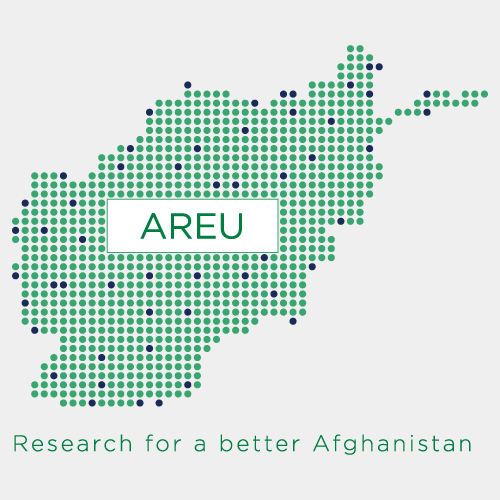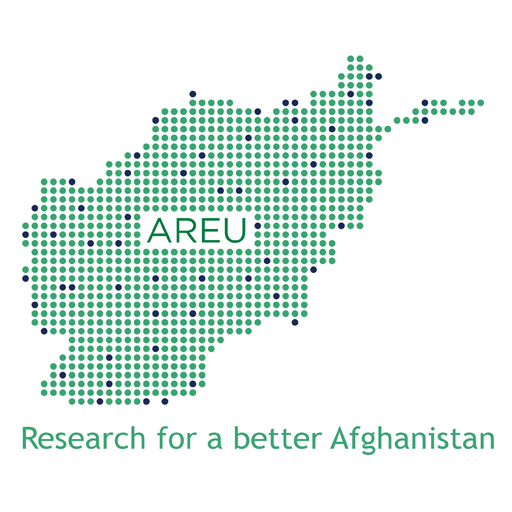
22 Aug Research Consultant
Terms of Reference:
Research Consultant
About AREU
Afghanistan Research and Evaluation Unit has conducted original research and provided evidence-based analysis that has informed policy and practice for more than two decades. As an independent, apolitical organization, AREU maintains its position as a Leading Research organization in Afghanistan. It was recognized as 3rd top think tank out of 65 in Central Asia and 26th out of 148 globally by the Lauder Institute at the University of Pennsylvania.
AREU has established a reputation for producing high-quality policy-relevant research made widely available to practitioners and other stakeholders in English, as well as Pashto and Dari. AREU is an authority in Afghanistan in terms of social policy research. AREU’s publications are used in academic institutions as part of their curriculum and by government and donor agencies when formulating policies and designing programs and projects.
AREU’s Research team comprises highly experienced and competent researchers with decades of experience in data collection, data analysis, research, and development practice. AREU is also able to draw on its extensive network of international researchers and subject matter experts. Since the political changes of August 2021, AREU has continued its work, adjusting its thematic focus and operating procedures accordingly.
The consultant will perform minor tasks that provide intellectual and program support to AREU, including reviewing and providing inputs on AREU draft publication, research proposal, framework, and other documents; identifying potential staff and consultant; and identifying potential research and communication opportunities.
Project Background
Afghanistan’s water reservoirs currently have various challenges that affect their condition and ability to provide a dependable water supply. These challenges include sedimentation, poor maintenance, and inadequate water management practices. Sedimentation is a particularly significant issue, as it reduces storage capacity and impacts water availability for domestic use, irrigation, and hydropower generation. This phenomenon is caused by several factors, such as erosion from deforested hillsides, agricultural runoff, mining activities, burn pits, and toxicities of various warfare ammunitions and modern warfare materials (e.g., burned uranium). As a matter of fact, it is reported that the storage capacity of some water reservoirs in Afghanistan has been reduced by up to 30%, leading to a shortage of water supply.
Despite periodic investments under different administrations, Afghanistan's water infrastructure still needs to be developed, modern, and insufficient to meet the demands of its burgeoning population and economy. Several reservoirs are affected by sedimentation, poor maintenance, and inadequate water management practices, resulting in reduced storage capacity and an unreliable water supply. These issues profoundly impact the country's ability to sustain its agricultural sector and meet its energy requirements, among other things.
In response to the earlier challenges, scholars and practitioners have advocated for enhanced sediment management techniques such as periodic dredging and establishing sedimentation basins upstream of reservoirs. There is a pressing requirement for amplified investment in water infrastructure and ameliorated governance and management practices to ensure that reservoirs can effectively cater to the expanding water needs of the nation. Such investments are necessary to increase the resilience of a population facing the existential threat of water shortages. AREU proposes to undertake a study to examine the impact of sedimentation on water storage and, in turn, on farmers’ livelihoods in Afghanistan and to identify possible policies and actions to mitigate sedimentation, improve current inadequate water infrastructure, and improve water management practices.
Scope of the study
To carry out a comprehensive study to identify gaps in knowledge on sedimentation of water storage and provide evidence-based policy recommendations for the sustainable development of water on the reservoir, the health and well-being of the population, and the protection of water infrastructure and the water environment in general.
Specific responsibilities
- Conduct a search and review of academic and non-academic literature on water sedimentation in English, Dari, and Pashto.
- Responsible for methodology development, Quality control of the data collected, writing the inception, narrative, and progress reports for donors, and implementing other specific research actions.
- Development of the tools for the study in line with the objectives and purpose of the study.
- Capacity building of the AREU research staff in the subject for better and high-quality data collection.
- Analysis of the data, writing the final study report, and communicating research findings at relevant meetings with external actors (government, UN, donors, NGOs, academia, and media).
- Ensuring research findings and write-ups meet the needs of AREU’s target audiences, particularly policy-makers, donors, and development practitioners.
- Working with other team members, consultants, and donors to develop new ideas for their thematic research areas.
- Supporting the development and planning of research concepts and proposals for funding within Social Behavioral Change.
Qualification
- Master’s degree (Ph.D. is preferable) in environmental engineering, sustainability science, natural resource management, or a related field.
- Over five (5) years of academic research background in emerging water problems, particularly water-related, and additional professional experience in water-related research & development is a plus.
- Proven ability to develop research-oriented policies and establish and lead effective working relationships and partnerships between or among multiple governmental and non-governmental organizations.
- Professional and specialist knowledge and familiarity with the current policy, context, and situation in Afghanistan, including the national and regional policy toward water issues, dynamics, and relationships of different governments, donor agencies, NGOs, media organizations, and other members of civil society, is highly desirable.
- Strong oral and written communication in English is required (knowledge of Afghan languages, such as Dari or Pashto, is desirable but optional).
- Evidence and demonstration of personal and professional commitment, an open mindset, tranquility to diversity and equality, and impartiality are required.
HOW TO APPLY:
Please apply by sending a CV/resume and a cover letter to [email protected]. The subject title of your email should be “Research Consultant†Closing date for receiving the applications is 5th September, 2023. Only short-listed candidates will be contacted.

